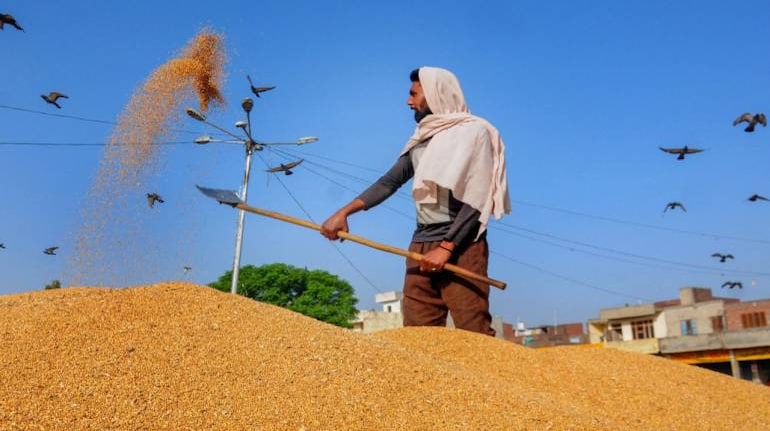



The central cabinet on May 31 approved a scheme to boost the capacity for storage of foodgrains across the country, the information minister said.
The scheme, that will cost Rs 1 lakh crore, will utilise funds already allocated to other schemes, Anurag Singh Thakur told reporters in New Delhi.
The scheme will use cooperatives across India to set up new warehouses, aiding food security and reducing imports, he added.
The scheme has been dubbed as the ‘world’s largest grain storage plan in cooperative sector', according to a statement by the Press Information Bureau.
The scheme would be kicked off with a pilot project in at least 10 selected districts across the country.
The cabinet also approved the constitution and empowerment of an Inter-Ministerial Committee for facilitation of the scheme by convergence of various schemes of the Ministry of Agriculture and Farmers Welfare, Ministry of Consumer Affairs, Food and Public Distribution and Ministry of Food Processing Industries.
The scheme would be implemented by utilising the available outlays provided under the Agriculture Infrastructure Fund, Agricultural Marketing Infrastructure Scheme, Mission for Integrated Development of Horticulture, Sub Mission on Agricultural Mechanization, Pradhan Mantri Formalization of Micro Food Processing Enterprises Scheme, Pradhan Mantri Kisan Sampada Yojana, Allocation of food grains under the National Food Security Act and Procurement operations at Minimum Support Price.
The scheme will lead to the creation of infrastructure such as godowns, etc. for agriculture and allied purposes, at selected viable Primary Agricultural Credit Societies.
It would help Primary Agricultural Credit Societies undertake various activities, such as functioning as procurement centres for state agencies or Food Corporation of India; serving as Fair Price Shops; setting up custom hiring centres; and setting up common processing units.
The scheme would lead to decentralised storage capacity at the local level, reducing foodgrain wastage and strengthening food security of the country.
“By providing various options to the farmers, it would prevent distress sale of crops, thus enabling the farmers to realise better prices for their produce,” the government said. It would also cut the cost incurred in transportation of foodgrains to procurement centres.
India has more than 100,000 Primary Agricultural Credit Societies with a huge member base of more than 13 crore farmers, according to the government.
Discover the latest Business News, Sensex, and Nifty updates. Obtain Personal Finance insights, tax queries, and expert opinions on Moneycontrol or download the Moneycontrol App to stay updated!
Find the best of Al News in one place, specially curated for you every weekend.
Stay on top of the latest tech trends and biggest startup news.